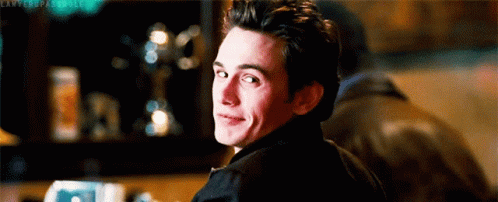The Pittsburgh Press (April 10, 1943)

Roving Reporter
By Ernie Pyle
In Tunisia –
The American war correspondents in Tunisia work hard and conscientiously; they get frightened and exhilarated; and frequently they are depressed by the tragedies around them. They’re doing a job which most of them find extremely interesting, but they all wish it were over.
The most picturesque of the correspondents is Jack Thompson of The Chicago Tribune. He is a husky fellow, and has grown a terrific black beard. He looks ferocious, but he is gentle-mannered and considerate, and always willing to help a newcomer get onto the ropes. He has been in Tunisia from the beginning, and has spent more time here than any other correspondent.
The only other bewhiskered member of the corps is Eliot Elisofon, photographer for LIFE. He has grown a Continental goatee which makes him look like a magician. Elisofon is afraid, like the rest of us, yet he makes himself go right up into the teeth of danger. I’ve never known a more intense and enthusiastic worker than Elisofon.
I like practically all the correspondents, but one of my favorites is Graham Hovey of International News Service. I like him because he is quiet and undemanding, and because he is sensitive to the beauties as well as the horrors of war.
Hovey had an unusual baptism. He had been in the headquarters office for some time, pestering his boss to get to the front. Finally, he went, and on the first day almost got killed.
The very first bomb he ever saw fall, the very first one he ever heard explode, was a 500-pounder that hit within 50 feet of him and killed three men. He and Boots Norgaard of the Associated Press, a veteran at these things, escaped only by the freakish luck of finding a ready-made slit trench just where they stopped. Hovey was shaken by the experience, yet now, after a few weeks he feels that same fascination for the front that I do.
Most of the correspondents keep themselves pretty presentable at the front. I think it is not going too far to say that I am the worst-looking one of the lot.
Correspondents have officer status, you know, and wear regular officers’ uniform without insignia. But in order to keep warm, I dress like a cross between Coxey’s Army and the Ski Patrol. I wear Army coveralls, enlisted men’s mackinaw, knit cap, goggles and overshoes. The only way you can tell me from a private is that I’m too old.
The two oldest correspondents here are Gault MacGowan, of The New York Sun and myself. Gault is in his late 40s, and was wounded in the last war. He always has his pad and pencil out, and is a fiend for writing down names and addresses of New York soldiers. The other day we saw him right up among the men who were firing, writing down names. It was almost like a cartoon. He told one soldier:
I do on the battlefield what Winchell does at home.
Bill White of The New York Herald-Tribune was in Tunisia for two months before returning to the city. When he came back, he was tanned completely black, was so pure and healthy from rough living that he wouldn’t even smoke a cigarette, and insisted on sleeping on the hotel-room floor in his bedroll the first night.
Bill Stoneman of The Chicago Daily News was the first correspondent to be wounded in Tunisia. He was furious about it. In the first place, he got shot in his behind; secondly, when the surgeons dug out the bullet, it turned out to be only .22 caliber. Bill felt that the whole thing was ignominious.
Stoneman is one of the few professional foreign correspondents here. He has been in Europe for 15 years, knows all the capitals intimately, has a colossal diplomatic acquaintance throughout Europe, and speaks many languages, including some Russian. While convalescing from his wound, he decided to learn Arabic. So, he called up an agency and told them to send him an instructor, preferably a luscious Arab girl. But just as Bill expected, the teacher turns out to be a bedraggled male pedagogue who works him to death. The last I heard he was rapidly packing his bags for the front again.
